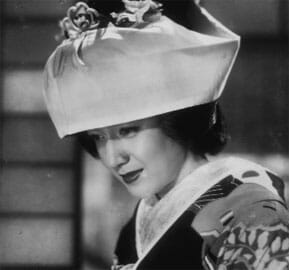
Original Release Date: 1949
Director: Yasujiro Ozu
Writers: Yasujiro Ozu and Kogo Nodo
Cinematography: Yuharu Atsuta
Starring: Setsuko Hara, Chishu Ryu
Studio info: Criterion, 110 mins.
Ozu’s best film an understated masterpiece
Late Spring—the best film by Japanese master Yasujiro Ozu and one of the greatest films ever made—is finally available on DVD. It’s the story of a widowed father and his daughter, played by two of Ozu’s favorite actors, Chishu Ryu and Setsuko Hara, and—like many of Ozu’s films—it’s deeply affecting even though it completely lacks the elements that drive most tear-jerkers: villains and stupidity.
No, this movie is about good souls trying to balance their own needs with those of the people they care about. Hara plays a woman of marrying age in post-war Japan who is content to stay home and care for her aging father instead of setting out on her own. But her father worries that, in her late spring, she is throwing her life away. As he tries to convince her of this, the story unfolds in the grey areas between guilt and responsibility, between self-sacrifice and personal worth.
Ozu’s patient camera picks up the tender performances so clearly that I find myself watching every understated facial expression for clues that explain this very foreign family dynamic. Many Westerners are intimately familiar with the career and family themes Ozu explores in Tokyo Story, his best-known film. But few 21st-century Americans have felt the kind of conflict that the daughter in Late Spring feels, which makes the film all the more remarkable for bridging this cultural gap and grabbing hold of us anyway.
As director and Ozu fan Jim Jarmusch says in his film Ghost Dog: The Way of the Samurai, “the end is important in all things.” It’s a quote from Hagakure, a samurai instruction book, but this observation surely applies to movies. Late Spring ends with a simple, everyday act-someone peeling a piece of fruit—but by the time it gets there Ozu has so completely earned our attention, respect and emotional involvement that this simple act never fails to leave a lump in the throat. It’s an ending without words—Ozu knew we wouldn’t need any.